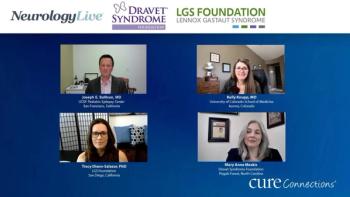
Kelly Knupp, MD, provides insight on optimizing treatment for patients with Lennox-Gastaut Syndrome.

Kelly Knupp, MD, provides insight on optimizing treatment for patients with Lennox-Gastaut Syndrome.

Dr Kelly Knupp examines data on fenfluramine and cannabidiol for the management of Lennox-Gastaut Syndrome.

Dr Brownlee shares his advice and recommendations from national MS society on providing cognitive care for patients suffering from MS.

A multiple sclerosis expert, Dr Brownlee shares study design and clinical data on relapse following discontinuation of ozanimod in patients with multiple sclerosis.

Dr Wallace Brownlee discusses reasons of and clinical impact of treatment discontinuation in multiple sclerosis.

The professor of psychiatry and cell biology at NYU Langone provided insight on the reaction to a new paper that challenges how traditional drug development has approached Alzheimer disease. [WATCH TIME: 4 minutes]
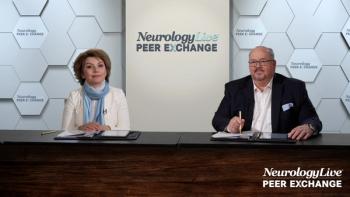
Experts in neurology discuss the considerations and practicalities of treating patients with multiple sclerosis who may undergo surgery and explore the role of treatment holidays.

Regina Berkovich, MD, PhD, comments on the role of patient education in engaging ethnically diverse and underrepresented patient populations with multiple sclerosis in their treatment plans.
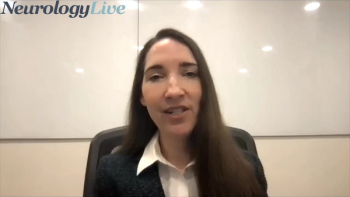
The vice president of clinical development at Biohaven shed light on a newly initiated phase 3 study evaluating a promising agent for patients with all types of spinal muscular atrophy. [WATCH TIME: 2 minutes]

Experts in neurology comment on clinical trial design considerations and discuss novel imaging techniques and biomarkers that they consider most important to investigate for multiple sclerosis.
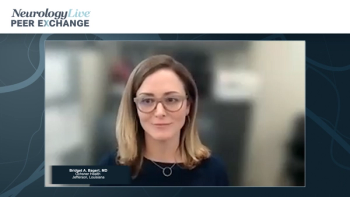
Bridget A. Bagert, MD, leads a discussion on the ideal patient populations for using a potential vaccine for multiple sclerosis, and the panel comments on other factors to consider when administering vaccines.

Dr Williams discusses the role of shared decision-making in treating patients with migraines.

A migraine specialist discusses nonpharmacological treatment options and their use for migraines.

Dr Ericka Wong discusses recent FDA approval of efgartigimod for myasthenia gravis.

Ericka Wong, MD, discusses challenges and opportunities with new FDA-approved treatments for myasthenia gravis.
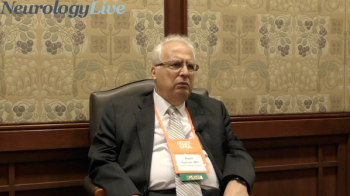
The associate neurologist-in-chief at Boston Children’s Hospital provided insight on the treatment decisions clinicians make for patients with SMA and the challenges with improving optimization. [WATCH TIME: 3 minutes]
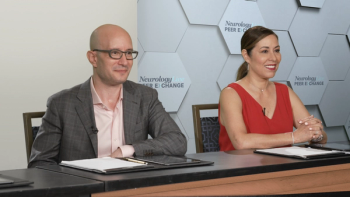
Dr Flavia Nelson comments on the impact of S1P modulators on brain volume measures; highlighting thalamic atrophy and its correlation with brain volume loss in MS.
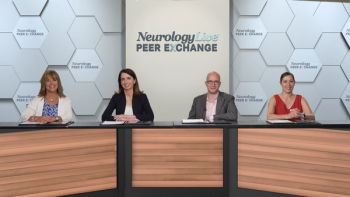
Experts in neurology review data surrounding the role of disease-modifying therapies in preventing grey matter brain atrophy and cognitive decline.
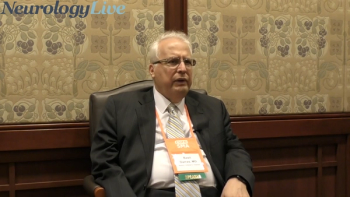
The associate neurologist-in-chief at Boston Children’s Hospital discussed the importance of defining and acting on spinal muscular atrophy in its presymptomatic stages. [WATCH TIME: 4 minutes]
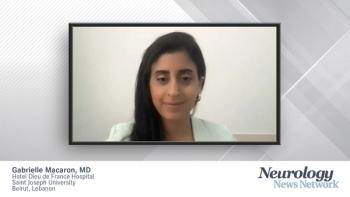
Dr Macaron shares her interpretation of the data and importance of individualizing treatment for patients with multiple sclerosis.

Dr Gabrielle Macaron reviews data with ozanimod in treatment naïve vs experienced patients with relapsing multiple sclerosis presented at EAN 2022.

A multiple sclerosis expert, Dr Gabrielle Macaron, discusses factors that can lead to a change of therapy for patients with multiple sclerosis.
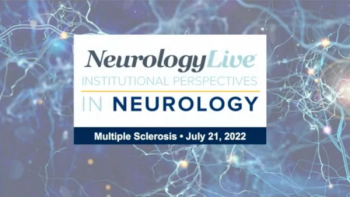
Chaired by Annette Okai, MD, of North Texas Institute of Neurology & Headache, the presentations also feature Fernando Cuascut, MD, MPH, of Baylor College of Medicine; and Lauren Tardo, MD, and Rebecca Romero, MD, of UT Southwestern Medical Center. [WATCH TIME: 1 hour, 18 minutes]
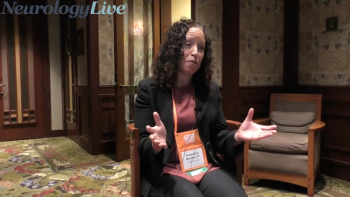
The associate professor of rehabilitation and regenerative medicine at Columbia University Medical Center discussed the ways clinicians go about properly prescribing exercise regimens for patients with spinal muscular atrophy. [WATCH TIME: 3 minutes]

James F. Howard Jr., MD, and Nicholas J. Silvestri MD, FAAN, deliver parting thoughts on the state of the myasthenia gravis treatment, focusing on current deficits and future prospects.

Two subject matter experts discuss promising treatment methods and agents in the pipeline for patients with myasthenia gravis.

The director of the John P. Hussman Institute for Human Genomics at the University of Miami detailed a new international initiative that expands on the genetic backgrounds of people of Hispanic and African ancestry. [WATCH TIME: 4 minutes]
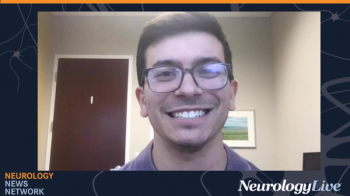
Neurology News Network for the week ending July 23, 2022. [WATCH TIME: 4 minutes]
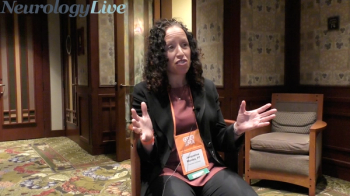
The associate professor of rehabilitation and regenerative medicine at Columbia University Medical Center provided insight on the tools and gaps in care for assessing physical capacity in patients with spinal muscular atrophy. [WATCH TIME: 4 minutes]

Joseph E. Sullivan, MD, leads a discussion on treatment options for the management of patients with LGS and considers the impact of treatment on quality of life.